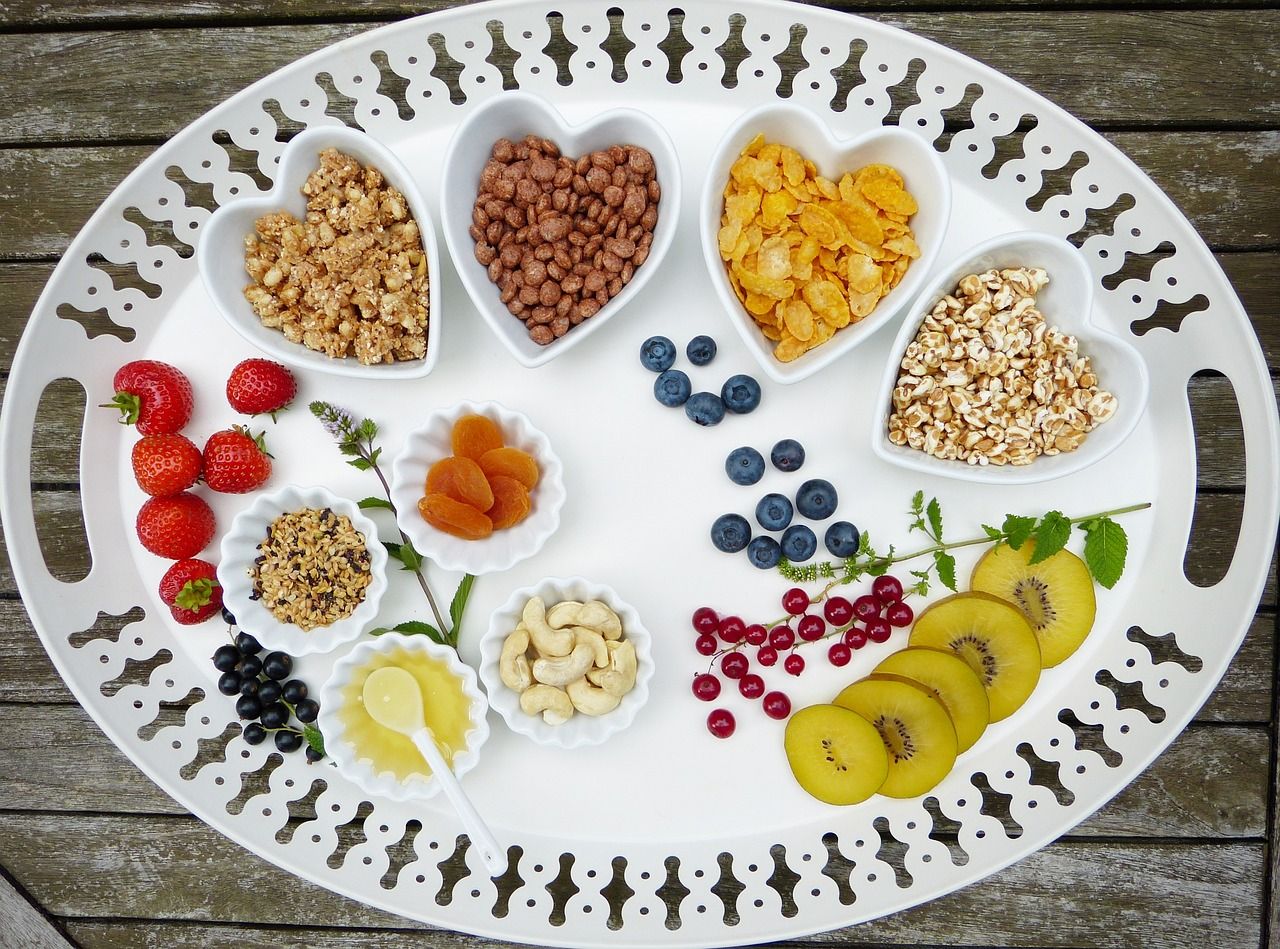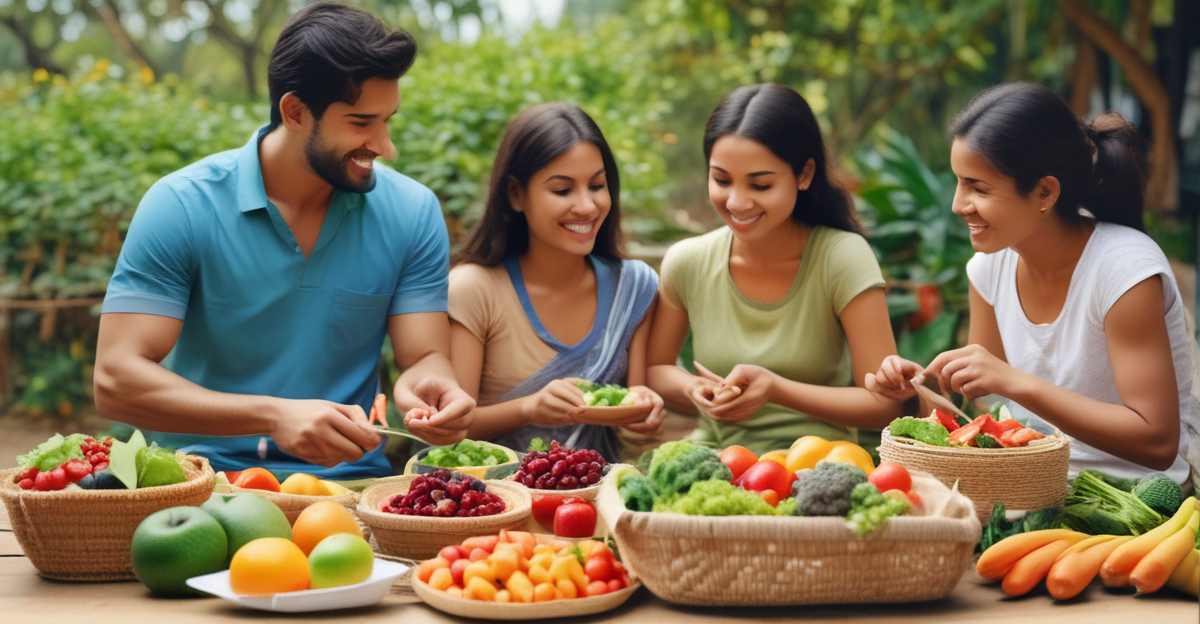Auto-published by Growwh – a smarter way to scale content and marketing. Want to know more? Chat with us.
An exploration of the evolution of healthy eating in India, examining the impact of the pandemic, current consumer behaviors, and future trends in the health food sector.
Auto-published by Growwh – a smarter way to scale content and marketing. Want to know more? Chat with us.
The Evolution of Healthy Eating in India: What’s Next for the Market?
Eleven years ago, suggesting salad as a complete meal in India was met with skepticism: “Indians don’t eat salads for lunch.” Today, that idea has sparked a transformative movement reshaping India’s relationship with food and nutrition. This evolution signals a shift from pure survival eating to food optimisation driven by health, wellness, and performance.
Ready to take your brand to the next level?
At Growwh, we help startups and emerging brands grow faster with powerful content, creator collaborations, and tech solutions.
Explore what we do →
From Survival to Optimisation: The Changing Indian Food Landscape
Back in 2014, Indian healthy eating was largely synonymous with traditional home-cooked meals—especially dal and rice—and the fast-food market’s idea of “healthy” was limited to options like Subway. Salads were not considered fulfilling meals, and eating was primarily about sustenance, comfort, or celebration.
Over the past decade, this mindset has undergone a cultural revolution. The narrative has shifted profoundly—from doubting if Indians would embrace salads to focusing on how to make healthy eating accessible and mainstream. This is backed by impressive market data: India’s health and wellness food market is projected to reach $30 billion by 2026, growing at a remarkable 156% since 2021.
However, these figures tell only part of the story—the greater transformation lies in how Indians now perceive food: not merely as fuel for survival but as fuel for enhanced body and mind performance.
The Pandemic as a Catalyst for Healthy Eating
The COVID-19 pandemic accelerated the healthy eating revolution in India. Awakened by concerns about immunity and health, people embraced turmeric shots, vitamin-rich vegetables, and plant-based proteins, once niche items, becoming part of daily grocery lists.
At Salad Days, we witnessed this shift firsthand—customers new to salads began requesting detailed nutritional information about ingredients. The demand evolved beyond healthy food to conscious, informed eating where consumers wanted to understand the “why” behind their choices.

The Sophisticated New Indian Health Consumer
India’s contemporary health-conscious consumer is remarkably discerning. They pursue transparency in sourcing, sustainable practices, and maintain authentic flavors. They research the carbon footprint of their meals while demanding that healthy food also excites the palate.
This paradox—termed the “wellness paradox”—reflects their desire for:
- Global nutrition trends tailored to local palates
- Premium quality that remains affordable
- Convenience without sacrificing freshness
Meeting these sophisticated expectations is propelling innovation throughout India’s food industry.
Technology Meets Traditional Indian Food Wisdom
One of the most exciting aspects of India’s healthy eating transformation is the intersection of cutting-edge technology with time-honored traditional nutrition. Nutrition apps track macronutrients and health data, social media educates on superfoods, and delivery platforms disclose calorie counts—yet simultaneously, Indians are rediscovering ancient grains like millets and health-boosting fermentation methods passed down for generations.
The rise of “functional foods” perfectly embodies this fusion. Traditional ingredients such as turmeric, ashwagandha, and moringa—long staples in Indian kitchens—are now widely recognized as adaptogens and superfoods. India is not merely replicating Western health trends; it is reaffirming the nutritional intelligence embedded in its own food culture.
Regional Nuances Driving a National Movement
Healthy eating trends differ across India’s diverse regions. Metro cities like Mumbai and Bangalore readily embrace global trends such as quinoa bowls, keto options, and plant-based proteins. Meanwhile, Tier II cities emphasize health foods aligned with local tastes, seasonality, and more affordable pricing.
The urban-rural divide is narrowing as digital connectivity and rising incomes fuel health awareness in rural areas. However, rural consumers tend to favor traditional foods and seasonal eating, reflecting a gradual yet ongoing shift in food consumption habits nationwide.
Five Key Trends Shaping India’s Healthy Eating Future
1. Hyper-Personalisation
Health eating is becoming highly personal. DNA-based nutrition, AI-driven meal planning, and customised diets based on individual health metrics are emerging trends. Early adopters are willing to invest more in meals tailored to their unique needs.
2. Radical Transparency
Consumers demand full visibility on the origins, cultivation methods, producers, and environmental impacts of their food. Blockchain-enabled supply chains and farm-to-table traceability will become standard competitive advantages.
3. Climate-Conscious Eating
Sustainability is central to food choices today. Plant-forward diets are growing—not just for health but to reduce environmental impact. Expect to see carbon footprint labelling and rising preference for locally sourced, seasonal ingredients.
4. Functional Convenience
Consumers want quick, convenient food without compromising nutrition. Functional foods—fortified meals, targeted probiotics, and mood-enhancing ingredients—will blur the lines between food and medicine.
5. Community-Driven Wellness
Healthy eating is becoming a social experience with group meal planning, community-supported agriculture, and wellness-centric food events gaining popularity. Building communities around shared health goals will be vital for brands.
The Future of Healthy Eating in India
The evolution of healthy eating in India is more than a booming market opportunity—it’s a fundamental shift in how Indians perceive food, health, and lifestyle. Today’s consumers seek solutions that respect their cultural roots while embracing modern wellness trends, delivering healthy eating that is accessible, enjoyable, and sustainable.
Brands succeeding in this ecosystem will combine authenticity, innovation, and genuine care for consumer well-being. In a culture where food is a profound expression of identity and celebration, this healthy eating revolution is transforming not just what Indians eat, but who they are.
Varun Madan, Founder and CEO of Salad Days
This article was auto-generated as part of a smart content campaign. Curious how we do it? Chat with us to learn more about our content automation systems.
This article was auto-generated as part of a smart content campaign. Curious how we do it? Chat with us to learn more about our content automation systems.
Discover more from Growwh
Subscribe to get the latest posts sent to your email.


